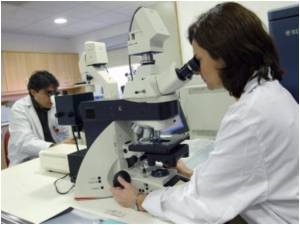“If you wish, as I do, to build a society in which individuals cooperate generously and unselfishly towards a common good, you can expect little help from biological nature. Let us try to teach generosity and altruism, because we are born selfish.”
The Selfish Gene (1976) by Richard Dawkins, Evolutionary biologist.Philosopher Thomas Hobbes’s Leviathan in 1651 commented thus, “Humans are fundamentally and universally selfish, and governments must control them so that they don’t destroy one another in the shortsighted pursuit of self-interest.”
But of late, the belief in the rationality of human selfishness is beginning to lose its charm as many are beginning to understand the need to be unselfish.
What could be the reason?
The Unselfish Man
Harvard University mathematical biologist Martin Nowak declared, in Science magazine, “Perhaps the most remarkable aspect of evolution is its ability to generate cooperation in a competitive world. Thus, we might add ‘natural cooperation’ as a third fundamental principle of evolution beside mutation and natural selection.”
An amazing example is that which occurred in Spain, where thousands of farmers have common access to water and have been managing the same with success.
Today there is a sense of co-operation and generosity among people at large. We see people collaborating in all aspects, caring about their team and overall reciprocating kindness with kindness.
Why kindness?
It is seen that co-operative systems are more effective, sustainable and stable when compared to incentive (read selfish) systems.
Research has revealed that across the world several different people are demonstrating selfless behavior as opposed to the selfishness that they were thought to possess.
Evolutionary biologists and psychologists have found neural, and possibly genetic evidence, to support the fact that humans have an inherent disposition to cooperate, leading to the belief that mankind is not as selfish as it is believed to be.
We tend to create efficient systems by enhancing our positive traits rather than learning to cope with the worst.
It is precisely for this reason that a large majority of human beings are increasingly being more cooperative, trustworthy, and generous than what was previously assumed.
Gene, Culture and Evolution
Anthropologists Peter Richerson and Robert Boyd worked on the gene and culture co-evolution.
They argue that cultures originate not only through copied practices but also by changes in genetic development brought about by cultural practices.
The most common example is adult lactose tolerance, which is commonly seen among descendents of European people who consume milk. This trait, however, is missing in those who made it a practice to break down lactose to create milk products, like yogurt and cheese.
Lactose tolerance is a genetic trait, which came about due to a cultural practice—drinking milk-- rather than eating yogurt or cheese. The latter practice has been about for a lesser period of time.
Studies conducted by James Fowler et al revealed that decision to vote has a strong genetic component. What has voting to do with collaboration or co-operation, one may ask!
Deciding to vote reflects conscientiousness, which might have been a rewarding trait in a particular culture long time ago. This trait would have thrived in every given sense and gradually conscientiousnessbecame a part of the genetic make up of the population.
Neuroscience has revealed that a reward circuit in our brain is triggered when we cooperate with each other and, this is turn generates a ‘feel good’.
All these factors put together help us to understand that our “much – talked- about” inherent selfishness is slowly giving way to cooperation, collaboration and an increase in empathy.
At last mankind has begun to understand the true meaning of the adage “no man is an island”!
Source-Medindia









